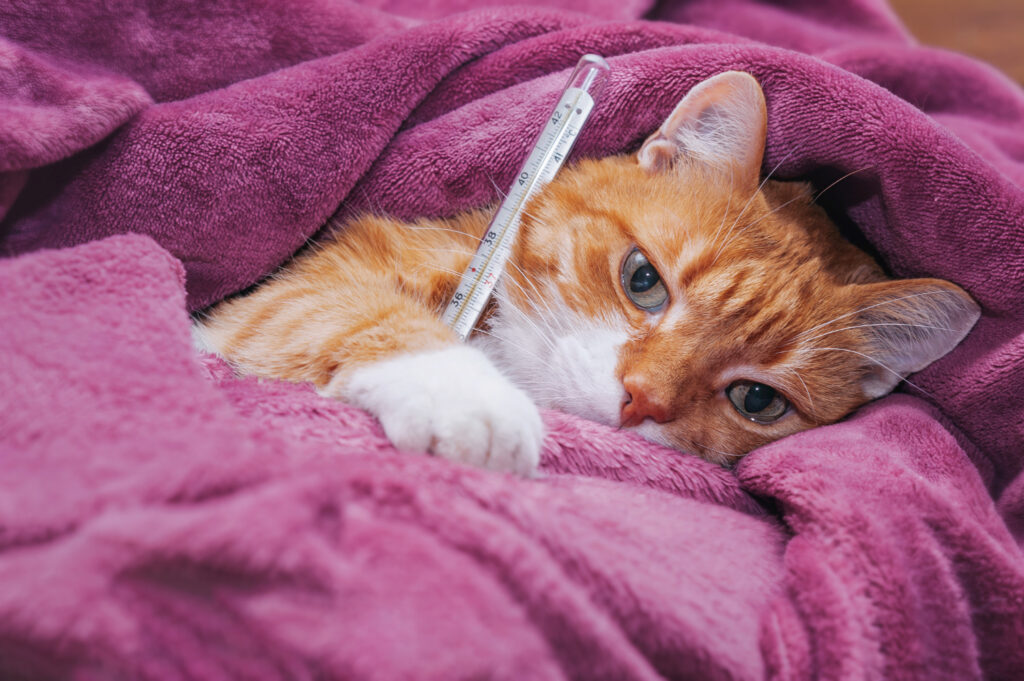Pets bring joy and companionship, but their health needs constant attention. Recognizing Pet Illness Symptoms early can be life-saving. If you notice unusual behaviors or physical changes, a vet visit might be necessary. In this blog, we’ll discuss the top 10 Pet Illness Symptoms that should never be ignored and how to handle them effectively.
Table of Contents
ToggleUnderstanding Pet Illness Symptoms
Every pet parent must be aware of common Pet Illness Symptoms that indicate a serious health problem. Ignoring these signs can lead to severe complications, making early detection crucial. Pet owners should always observe changes in their pet’s eating habits, physical activity, and behavior to ensure their well-being.
1. Loss of Appetite
A sudden loss of appetite in pets is a red flag. If your pet refuses food for more than 24 hours, it could indicate an underlying health issue such as infections, dental problems, or organ disease. Loss of appetite is often linked to gastrointestinal issues, fever, or even emotional distress. A vet consultation is crucial to diagnose the problem and determine appropriate treatment.
2. Unusual Weight Loss
Unexpected weight loss, even with a normal diet, signals serious Pet Illness Symptoms. It could be due to diabetes, kidney disease, or cancer. In some cases, intestinal parasites can also cause weight loss in pets. A professional examination ensures early intervention, and diagnostic tests such as blood work or imaging may be necessary to determine the root cause.
3. Vomiting or Diarrhoea
Occasional vomiting or diarrhoea isn’t uncommon, but frequent episodes can indicate gastrointestinal issues, poisoning, or infections. If these Pet Illness Symptoms persist for over 24 hours, a vet check is essential. Vomiting combined with lethargy, dehydration, or blood in the stool requires immediate medical attention. Common causes include food intolerance, viral infections, or toxic ingestion.
4. Lethargy and Weakness
If your pet is unusually tired, inactive, or showing difficulty in movement, it might be suffering from infections, anaemia, or metabolic disorders. Lethargy is a significant Pet Illness Symptom requiring immediate attention. A sudden decline in energy levels can also be caused by dehydration, fever, or neurological conditions. Monitoring your pet’s activity levels and consulting a vet when necessary is vital.
5. Persistent Coughing or Breathing Issues
Respiratory issues, excessive coughing, or difficulty breathing are serious Pet Illness Symptoms. These may indicate heart disease, lung infections, or allergies. Seek veterinary care immediately. Coughing that persists for days may also be a sign of kennel cough, tracheal collapse, or pneumonia. Difficulty breathing, rapid breathing, or wheezing should never be ignored.
6. Changes in Drinking or Urination Habits
Increased or decreased drinking and urination can indicate diabetes, kidney disease, or infections. Sudden changes should never be overlooked as they are critical Pet Illness Symptoms. Pets that drink excessive water may be experiencing issues related to hormonal imbalances or organ dysfunction. Difficulty urinating, blood in urine, or straining while urinating should be addressed promptly to avoid severe complications.

7. Skin Issues and Hair Loss
Excessive itching, hair loss, sores, or redness can be signs of allergies, infections, or parasites. If these Pet Illness Symptoms persist, a vet should be consulted for proper treatment. Skin conditions in pets can be caused by bacterial or fungal infections, autoimmune disorders, or flea infestations. Early treatment can prevent discomfort and further complications.
8. Difficulty Walking or Limping
Limping, stiffness, or trouble moving can be due to arthritis, injuries, or neurological disorders. If these symptoms last for more than a day, veterinary care is needed. Joint problems, ligament tears, or even tick-borne diseases can affect your pet’s mobility. Anti-inflammatory medications, supplements, or physical therapy might be recommended depending on the diagnosis.
9. Bad Breath and Dental Problems
Poor oral hygiene can lead to severe health problems. Bad breath, bleeding gums, or difficulty eating are major Pet Illness Symptoms. Regular dental check-ups can prevent serious conditions. Dental disease in pets can lead to infections that spread to major organs, including the heart and kidneys. Professional cleaning and proper at-home dental care are crucial for maintaining oral health.
10. Unusual Behaviour or Mood Swings
Aggression, anxiety, excessive hiding, or sudden mood swings can indicate pain, stress, or neurological issues. Behavioural changes are often early signs of illness and should be evaluated by a vet. Conditions such as thyroid imbalances, cognitive dysfunction in older pets, or brain injuries can manifest through mood changes. A thorough examination can help identify the underlying issue.
When to Seek Veterinary Care for Pet Illness Symptoms?
- If any Pet Illness Symptoms persist for more than 24 hours.
- If your pet shows severe pain, distress, or breathing difficulties.
- If symptoms worsen despite home care.
- If there are sudden and severe behavioral changes in your pet.
- If your pet refuses to eat or drink for more than a day.
- If there is visible swelling, bleeding, or abnormal lumps on your pet’s body.
How to Prevent Pet Illness Symptoms?
- Regular veterinary check-ups: Preventative care helps identify potential issues early.
- A balanced diet and proper hydration: Ensure your pet gets the right nutrients.
- Parasite prevention and vaccinations: Protect against fleas, ticks, and common infections.
- Proper grooming and hygiene: Regular grooming reduces the risk of skin infections and matting.
- Exercise and mental stimulation: Keeping pets active supports overall health and prevents obesity.
- Monitoring changes in behavior: Early detection of symptoms leads to faster treatment and recovery.
Conclusion
Your pet’s health is your responsibility. Recognizing Pet Illness Symptoms early ensures timely treatment and a healthier life for your furry friend. Stay alert and consult a vet whenever you notice unusual symptoms. Your pet depends on you for their well-being—act promptly! Whether it’s a minor change or a severe issue, your attentiveness can make all the difference in ensuring your pet lives a long and happy life.







